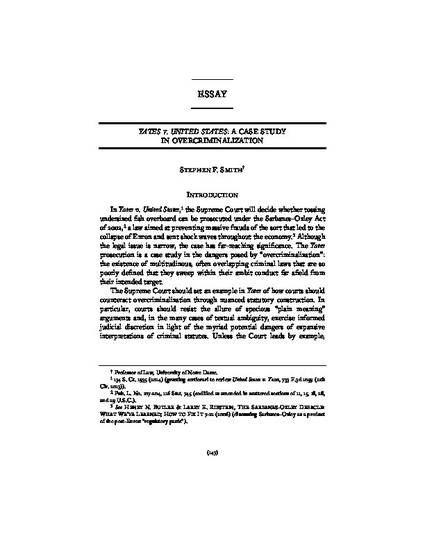
In Yates v. United States, the Supreme Court will decide whether tossing undersized fish overboard can be prosecuted under the Sarbanes–Oxley Act of 2002, a law aimed at preventing massive frauds of the sort that led to the collapse of Enron and sent shock waves throughout the economy. Although the legal issue is narrow, the case has far-reaching significance. The Yates prosecution is a case study in the dangers posed by “overcriminalization”: the existence of multitudinous, often overlapping criminal laws that are so poorly defined that they sweep within their ambit conduct far afield from their intended target.
The Supreme Court should set an example in Yates of how courts should counteract overcriminalization through nuanced statutory construction. In particular, courts should resist the allure of specious “plain meaning” arguments and, in the many cases of textual ambiguity, exercise informed judicial discretion in light of the myriad potential dangers of expansive interpretations of criminal statutes. Unless the Court leads by example, prosecutors will continue to exploit poorly defined federal crimes to produce miscarriages of justice such as those that occurred in Yates.
Available at: http://works.bepress.com/stephen_f_smith/16/
